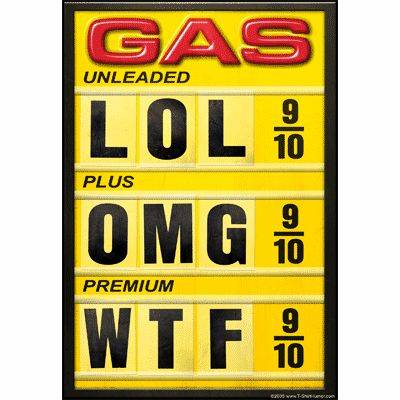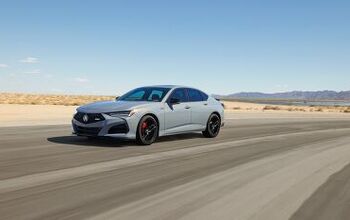Lower Gas Prices Don't Inspire More Driving
Apologists for business-as-usual in the car game often took to blaming unnaturally high gas prices for last year’s trends towards smaller car sales and fewer vehicle miles traveled. When gas prices go back down, went the argument, Americans will go right back to buying thirsty SUVs and Crossovers and driving more miles. Not true, it seems. The New York Times reports that vehicle miles traveled (VMT) has declined for 14 months in a row now, despite the fact that gas prices are now hovering at about half of their peak levels from last June. “When the decline in American driving was first identified in late 2007, fuel prices were beginning to increase. The prevailing wisdom at the time was that the drop was due to increased fuel prices,” says Doug Hecox of the Federal Highway Administration which monitors traffic on America’s roads. The FHA estimates that VMT has declined by 115 billion miles in the period between November 2007 and December 2008.
Economic decline is being blamed for the driving decline as recession was likely setting in around the same time that gas prices started to increase. The American Public Transportation Association shows a steady increase in public transportation ridership since the beginning of 2008, particularly in the first three quarters of 2008, when 3.42 to 6.52 percent more Americans took the bus. Ridership actually declined in the fourth quarter of 08 as job loss took its toll on public transportation riders, 58 percent of whom depend on the service to get to work. And despite having had one non-causal explanation for lower driving (high fuel prices) levels debunked, the FHA is running with the latest non-causal explanation predicting that Americans will rush back to their cars as soon as the recession is “over.” “When people have a job to go to,” says Hecox, “the decline in American driving may fade into the nation’s rear-view mirror.” Unless it doesn’t. In which case a new easily-understood reason is sure to emerge. Meanwhile, what happens if people get used to not depending on cars?
More by Edward Niedermeyer
Latest Car Reviews
Read moreLatest Product Reviews
Read moreRecent Comments
- Peter I want a self driving red ragtop 1958 Plymouth Fury. Just like the car in the movie Christine.
- Mgh57 Doesn't seem like this tech is ready for prime time.
- Nathan The Ram is the most boring looking of the full size trucks, kind of like a Tundra.If they cancel the Ram Classic, I hope a full resign makes the Ram at least look interesting.
- DJB1 I'll be all for it when it has a proven safety record. I have an awesome life and a lot to live for, so right now I'm not putting that in the hands of overconfident tech-bros.
- Mgh57 I had to read the article because I had had no idea what the headline meant. I've never seen this in the Northeast. Don't understand the point. Doesn't seen efficient aerodynamically


































Comments
Join the conversation
I know a lot of people are just waiting for gas prices to jump back up and are not believing that the current gas prices will be a long term trend. That would go a long way to explaining why cars (when they do sell) are selling more than a large truck or SUV that is no longer needed.
A colleague of mine, a car guy (who won't buy any foreign makes - he says "American cars are defined for him by where the HQ is") is dumping an S-10 pickup and buying a new leftover 2008 Chevrolet HHR SS turbo. He's spending somewhere south of $18,000, I think. His brother-in-law sells Chevies at the local stealership and offered him a nice lightly used 2008 Impala SS V8 for less money. He was tempted and when he spoke to me about it I said 2 things. $4.19 per gallon. Wrong wheel drive and torque steer. He laughed and said - yep. Not a chance. He'll take the HHR. Locally, the Kia dealer is (supposedly) knocking off $6000 from the price of $19,800 left-over 2008 Kia Rondo wagons. Personally, I'd buy the car from the manufacturer likely to survive (Kia), especially considering the 28% or so discount.... (the dealer way overstocked - still has 65 cars left, is selling about one per day, if their website count is to be believed).